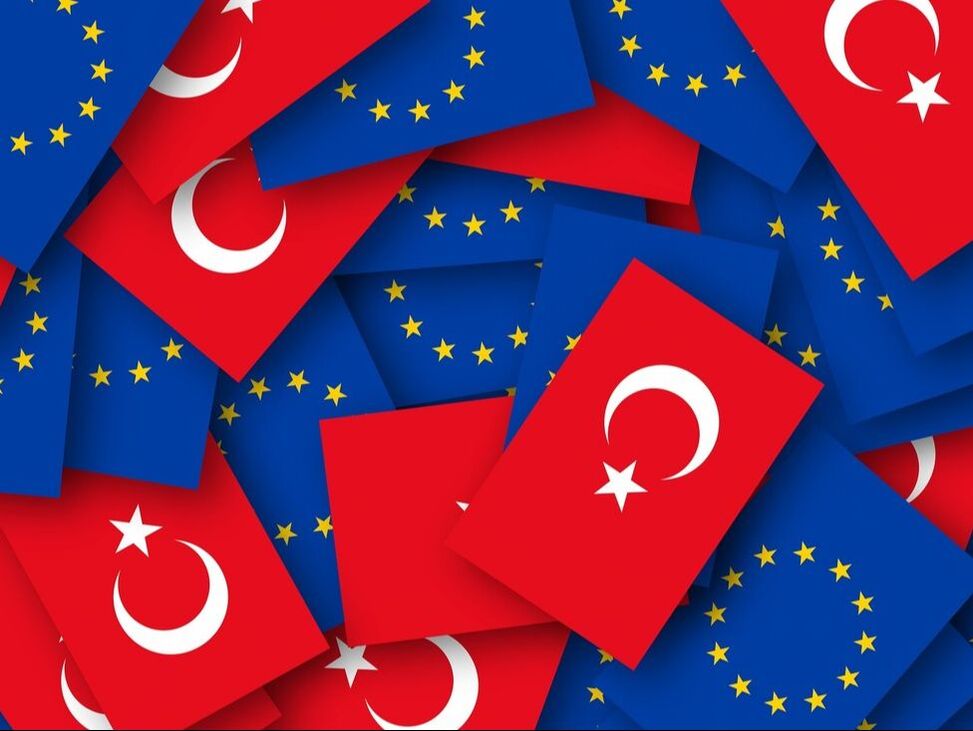|
|
|
‘Turkey in means Britain out’: this was one of Nigel Farage’s rallying calls during the Brexit campaign, and these ideas were echoed by numerous others within politics and the media during the referendum. A topic which has long proved controversial among Europe’s elites, Turkish involvement in the European Union has seen renewed interest and opposition over recent years in the context of the so-called ‘migrant crisis’, the 2016 EU-Turkey statement, rising Euroscepticism and the mainstreaming of Islamophobia.
Much of the scholarship has suggested that hostility towards Turkey is associated with the construction of European identity. However, while this notion works for those supportive of the EU, the same cannot be said for those who explicitly reject Europe. How and why, therefore, do openly Eurosceptic parties fervently defend the idea of ‘Europeanness’ in order to reject Turkish involvement in the EU? My Identities article, 'When Eurosceptics become Europhiles: far-right opposition to Turkish involvement in the European Union', explores this question by analysing articles from the official party websites of the United Kingdom Independence Party (UKIP) and the Front National/Rassemblement National (FN/RN) over a five-year period (2013-18). Drawing on theories of Islamophobia and Orientalism, the findings highlight that the construction of Turkey as a dangerous other does not constitute a new phenomenon linked to EU integration, but instead forms part of a longer tradition of racism towards ‘the Orient’.
Turkey as an other
It is too big, too poor and too different from us. (UKIP, 04/05/2016) Both UKIP and the FN/RN portray Turkey as fundamentally different from Europe in terms of its politics and its people. Orientalist metaphors alluding to empire, such as ‘sultan’, ‘Ottoman’ and a ‘future caliphate’, are used to describe the Turkish government and president. Thus, despite legitimate concerns over Turkish President Recep Tayyip Erdoğan’s repressive actions against Turkish citizens, the use of Orientalist imagery by these parties underlines their desire to create a form of cultural, not simply political, othering. This notion of cultural incompatibility is reinforced by their descriptions of Turkish civilisation and people. Religion is central in this framing, with negativity linked both overtly and covertly with Turkey’s association with Islam. For example, a comparison is made to Christians, who are described by the FN/RN as ‘deliverers of balance and stability’ (10/11/2017). The implication is that Muslims are the opposite to this description and are not only different from, but also inferior to, Europeans and European cultural heritage. Thus, strongly Eurosceptic parties become ‘Europhiles’ by subscribing to the notion of a collective European identity in order to other Turkey. Turkey as a threat You have declared the lands of our peoples 'lands open to mass immigration and Turkish influence.' (FN/RN, 11/05/2016) Both UKIP and the FN/RN depict Turkey as a source of danger to Europe through migration and terrorism. Alongside grossly exaggerated warnings of ‘80 million Turks’ (FN/RN, 01/05/2016) entering Europe, Turkish migrants are portrayed as having attitudes incompatible with European liberal progressiveness. UKIP, for example, claim that the arrival of male migrants ‘who do not share European values […] has resulted in spikes in crimes such as rape’ (18/10/2017). By linking sexual violence with migrants so unequivocally, it becomes an exclusively ‘non-European’ problem and, through the widespread manipulation of feminist ideas to target Islam, is implied to be simply a ‘Muslim’ problem (Farris 2012). Depictions of cultural threat are further emphasised by Turkey’s repeated association with terrorism, whether through accusations of participating in, facilitating or tacitly supporting it. As such, Turkish people are framed as posing a security threat to Europe. Terrorism, like sexual violence, becomes a ‘non-European’ issue, and similarly, its common association with Islam means that it is seen as rooted in culture (Tuastad 2010). The securitisation of Islam and immigration proves a powerful combination. As such, despite attacking the European political project, these parties become defenders of Europe against an outside ‘threat’. Eurosceptics become Europhiles In summary, these parties use Orientalist and Islamophobic discourse to construct Turkey as a dangerous other and exclude it permanently from a mythical vision of ‘Europeanness’. The transformation of Eurosceptics into Europhiles underlines how the rejection of Turkey does not simply constitute a mode of fostering loyalty to the EU but is also used to reinforce racist notions of Western superiority. References: Farris, S.R. 2012. Femonationalism and the 'regular' army of labor called migrant women. History of the Present 2: 184–199. Tuastad, D. 2010. Neo-Orientalism and the new barbarism thesis: aspects of symbolic violence in the Middle East conflict(s). Third World Quarterly 24: 591-599.
Blog post by Katy Brown, University of Bath, UK
Read the full article: Brown, Katy. When Eurosceptics become Europhiles: far-right opposition to Turkish involvement in the European Union. Identities: Global Studies in Culture and Power. DOI: 10.1080/1070289X.2019.1617530
0 Comments
Your comment will be posted after it is approved.
Leave a Reply. |
|
Explore Identities at tandfonline.com/GIDE |
|
The views and opinions expressed on The Identities Blog are solely those of the original blog post authors, and not of the journal, Taylor & Francis Group or the University of Glasgow.

